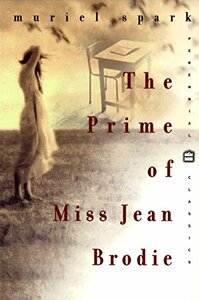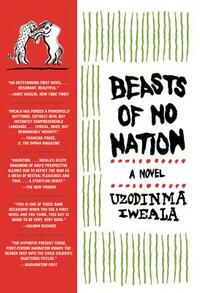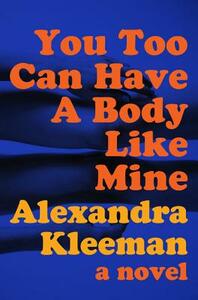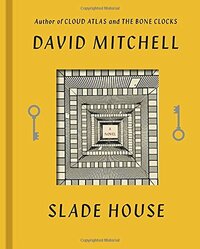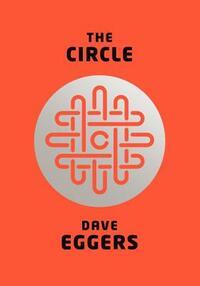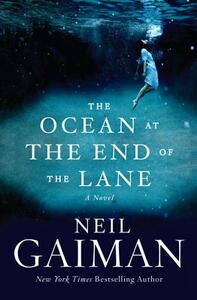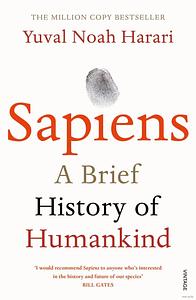You need to sign in or sign up before continuing.
Take a photo of a barcode or cover
matthewcpeck's Reviews (587)
J.M. Ledgard's "Submergence" was one of the most odd and powerful novels I've read in recent years, so I didn't need much coaxing to buy this new 3-part essay, although the cover and the title are plenty eye-catching. "Terra Firma Triptych" is about Africa, a continent for which Ledgard served as an "Economist" correspondent. The chapters focus respectively on visits to South Sudan and Rwanda, and then the idea of cargo drones being used as a boon to deindustrialized regions with decaying infrastructures. Ledgard is the type of thinker that I can only dream of becoming, one that can conceive of human civilization both in the longview and in the moment. Even if it turns into a sort of a business plan towards the end, "Terra Firma Triptych" is an unconventional and entrancing work of journalism that points to the understanding of Africa as a key to understanding the future of humanity.
Muriel Spark is often named as a spiritual ancestor to a number of my favorite writers, so I gravitated towards her iconic book. "The Prime of Miss Jean Brodie" is a short novel about a group of students at an upscale girls' school in 1930s Edinburgh, and the impact of the titular instructor. The unmarried and determinedly nonconformist Miss Brodie is my favorite sort of fictional character; a lover of art, female empowerment, and Mussolini, she's not easy to love or easy to despise.
I quite enjoyed Spark's style, with its cold, acidic humor and casual disregard for standard storytelling. Plot bombshells are less foreshadowed then matter-of-factly dropped in your lap, as time bounces between past and future. But I found it kind of inert and less than compelling, at least until the final quarter. Even at 129 pages, the middle is a bit of a slog. As much I admire the bite of Spark's writing, this felt more like an inflated short story than a compact novel.
I quite enjoyed Spark's style, with its cold, acidic humor and casual disregard for standard storytelling. Plot bombshells are less foreshadowed then matter-of-factly dropped in your lap, as time bounces between past and future. But I found it kind of inert and less than compelling, at least until the final quarter. Even at 129 pages, the middle is a bit of a slog. As much I admire the bite of Spark's writing, this felt more like an inflated short story than a compact novel.
If you want a write a novel about the subject of child soldiers, this is the way to do it: spare, direct, and vivid.
In "Beasts Of No Nation", Iweala crafts narration that is authentically childlike, while still making room for moments of eerie lyricism. The protagonist, Agu, relates his experience in a distinctive cadence - filled with present participle - that drops the reader into middle of civil war without the buffers of context (the location is never specified) or objectivity.
Rare is the book that starts off with such immediate intensity and then doesn't let up. In fact, I'm thankful that I read it in tiny chunks: it's short enough to finish over a couple of days, but at that pace it may have been slightly traumatic. The great achievement of this novel - which was published when Iweala was 23, goddamit - is the way that it forces the reader to comprehend the mentality of a human being driven to appalling acts. Luckily, it ends with a glimmer of hope.
In "Beasts Of No Nation", Iweala crafts narration that is authentically childlike, while still making room for moments of eerie lyricism. The protagonist, Agu, relates his experience in a distinctive cadence - filled with present participle - that drops the reader into middle of civil war without the buffers of context (the location is never specified) or objectivity.
Rare is the book that starts off with such immediate intensity and then doesn't let up. In fact, I'm thankful that I read it in tiny chunks: it's short enough to finish over a couple of days, but at that pace it may have been slightly traumatic. The great achievement of this novel - which was published when Iweala was 23, goddamit - is the way that it forces the reader to comprehend the mentality of a human being driven to appalling acts. Luckily, it ends with a glimmer of hope.
"You Too Can Have A Body Like Mine" is a pleasingly bizarre debut novel with a story that's difficult to summarize coherently. It's narrated by the youngish female "A", who lives in a generic suburban apartment with her fragile roommate "B". When A isn't spending time with her TV-obsessed boyfriend "C", she's struggling with the creeping suspicion that B is gradually absorbing her identity, "Persona"-style. Soon enough, after losing her boyfriend, her proofreading job, and her bedroom, A joins a doomsday cult called the Church of the Conjoined Eater, which espouses a dogma of starvation and a uniform of white sheets with eyeholes. (And an already surreal novel takes a left turn into even stranger territory.)
Alexandra Kleeman is a fresh, millennial descendant of other post-postmodern types like David Foster Wallace, Lydia Millet, and Ben Marcus. Maybe this book didn't quite flip my brain inside out like Marcus's early work, but it has the same knack for creative use of language to make elemental things - like speech, skin and food - seem hallucinatory and alien. It channels the philosophical quandaries of our age into a compelling fable: how much of our "self" is discrete from our physical attributes? And in spite of all this, it's consistently funny. I need a book this weird and heightened every so often, to help me look at the new world in a new way.
Alexandra Kleeman is a fresh, millennial descendant of other post-postmodern types like David Foster Wallace, Lydia Millet, and Ben Marcus. Maybe this book didn't quite flip my brain inside out like Marcus's early work, but it has the same knack for creative use of language to make elemental things - like speech, skin and food - seem hallucinatory and alien. It channels the philosophical quandaries of our age into a compelling fable: how much of our "self" is discrete from our physical attributes? And in spite of all this, it's consistently funny. I need a book this weird and heightened every so often, to help me look at the new world in a new way.
"Slade House" is a compact baby sibling to David Mitchell's previous novel, "The Bone Clocks". It features the same supernatural combatants, as well as other names and locations from the ever-expanding Mitchellverse. A reading of the previous book enhances "Slade House", but it's not required: "Slade House" stands independently as a sleek, fast-moving horror/fantasy.
The novel consists of chapters separated by nine-year intervals, all set in or around the titular manor, which appears to exist in a physically impossible location behind a small iron door in a winding alley in an unnamed English suburb. A procession of narrators - the most memorable are a near-autistic boy and an introverted university student - find themselves drawn to Slade House for varying reasons. After reality seems to disintegrate, they each face the same bleak fate at the mercy of a pair of soul-eating, immortal twins.
When Mitchell is building up the mystery in the first half of the book, it's quite unsettling and fun. He's a really good writer -sometimes a little too skilled, as the character and setting introductions at the start of each chapter seem almost machine-made in their smoothness. But those characters can often be quite affecting, and his ability at conveying a creeping, peripheral weirdness is reminiscent of full-time master fantasists like Kelly Link and Neil Gaiman. The thing is, though, that Link and Gaiman know how fantasy can be strengthened by withholding information. The last 3rd of "Slade House", like "The Bone Clocks" before it, is largely made up of overcooked expository dialogue that seems like it should be in a comic-book bubble positioned above the head of a supervillain with a leering grin.
I hope that "Slade House" and "The Bone Clocks" will represent a brief side trip in David Mitchell's career, and that he returns to the sensibility of his wondrous earlier novels. But like an immortal soul-eater, I will continue to greedily eat up whatever stories he tells, with no regrets.
The novel consists of chapters separated by nine-year intervals, all set in or around the titular manor, which appears to exist in a physically impossible location behind a small iron door in a winding alley in an unnamed English suburb. A procession of narrators - the most memorable are a near-autistic boy and an introverted university student - find themselves drawn to Slade House for varying reasons. After reality seems to disintegrate, they each face the same bleak fate at the mercy of a pair of soul-eating, immortal twins.
When Mitchell is building up the mystery in the first half of the book, it's quite unsettling and fun. He's a really good writer -sometimes a little too skilled, as the character and setting introductions at the start of each chapter seem almost machine-made in their smoothness. But those characters can often be quite affecting, and his ability at conveying a creeping, peripheral weirdness is reminiscent of full-time master fantasists like Kelly Link and Neil Gaiman. The thing is, though, that Link and Gaiman know how fantasy can be strengthened by withholding information. The last 3rd of "Slade House", like "The Bone Clocks" before it, is largely made up of overcooked expository dialogue that seems like it should be in a comic-book bubble positioned above the head of a supervillain with a leering grin.
I hope that "Slade House" and "The Bone Clocks" will represent a brief side trip in David Mitchell's career, and that he returns to the sensibility of his wondrous earlier novels. But like an immortal soul-eater, I will continue to greedily eat up whatever stories he tells, with no regrets.
3 1/2 stars. Writing about music can be tough, and writing about music with no lyrical content is harder. Writing about instrumental music as minimal and ethereal as the tracks on "Selected Ambient Works Volume II" - an album with which I've lately been engrossed - may seem near futile. But Marc Weidenbaum does the job with elegance and eloquence in this volume, describing the record's expansive quality as well as anyone could (on its 20th birthday). The historical context and lasting influence of the music are also explored, via interviews with people from both business and artistic realms. Aphex Twin/Richard D. James himself remains somewhat mysterious, but that's OK with me - it only enhances the music. I'd recommend this book to anyone else that's fascinated by ambient music. And if this volume and the "Village Green Preservation Society" are any indication, the 33 1/3 series books are about as good as pop-music essays can get.
Golly, this is a great book. Prior to reading, I somehow had the impression that "Fourth Of July Creek" was simply a crime thriller with an interesting setting and some positive critical buzz. As it turns out, Smith Henderson's debut is an epic tragedy of rural America that reminds me of Denis Johnson, Claire Vaye Watkins, and Cormac McCarthy.
Set at the start of the 1980s in the mountainous wilderness of western Montana, this novel is about an eventful year in the life of a social worker named Pete Snow. Social work seems like such fertile ground for dramatic and episodic storytelling, that it's odd that there isn't more pop culture on the subject. Henderson has done his research, and he convincingly relates Pete's routine of home visits, court appearances, and pick-ups/drop-offs. To compliment the range of domestic problems he faces in his work, Pete has an impressive share of his own - binge drinking, a brother on the lam after viciously beating his parole officer, and separation from his wife and teenage daughter. Pete's troubled daughter, Rachel, provides the parallel narrative running through the novel. Her chapters are presented as stylized questionnaires, a risky literary decision that ends up working beautifully instead of becoming a gimmick.
After Pete picks up a filthy and malnourished boy found lurking around the school, his path crosses with that of the child's father, a paranoid-apocalyptic-conspiracy-touting patriarch named Jeremiah Pearl. Pearl is an intriguing and frightening character - especially in our present era of domestic terrorism - but Henderson imbues him with increasing complexity and humanity as the book climbs toward a shocking revelation at its conclusion.
"Fourth Of July Creek" is a novel that manages to be downright addictive while telling its story at a near leisurely pace. Some of its magnetism is due to the vivid sense of place in Henderson's native Montana; some of it is due to the rugged poetry of his prose and dialogue. A great deal comes from its gloriously messed-up hero: Pete is one of the most compelling fictional protagonists I've ever encountered, and I'm holding out hope that Henderson uses him in some sequels. Aside from some insignificant quibbles about female characters and the piling on of hardships, this is an overwhelmingly good book. I recommend pairing it with "Preparation For The Next Life" for a sobering examination of neglected lives in the countrysides and cityscapes, respectively, of the United States.
Set at the start of the 1980s in the mountainous wilderness of western Montana, this novel is about an eventful year in the life of a social worker named Pete Snow. Social work seems like such fertile ground for dramatic and episodic storytelling, that it's odd that there isn't more pop culture on the subject. Henderson has done his research, and he convincingly relates Pete's routine of home visits, court appearances, and pick-ups/drop-offs. To compliment the range of domestic problems he faces in his work, Pete has an impressive share of his own - binge drinking, a brother on the lam after viciously beating his parole officer, and separation from his wife and teenage daughter. Pete's troubled daughter, Rachel, provides the parallel narrative running through the novel. Her chapters are presented as stylized questionnaires, a risky literary decision that ends up working beautifully instead of becoming a gimmick.
After Pete picks up a filthy and malnourished boy found lurking around the school, his path crosses with that of the child's father, a paranoid-apocalyptic-conspiracy-touting patriarch named Jeremiah Pearl. Pearl is an intriguing and frightening character - especially in our present era of domestic terrorism - but Henderson imbues him with increasing complexity and humanity as the book climbs toward a shocking revelation at its conclusion.
"Fourth Of July Creek" is a novel that manages to be downright addictive while telling its story at a near leisurely pace. Some of its magnetism is due to the vivid sense of place in Henderson's native Montana; some of it is due to the rugged poetry of his prose and dialogue. A great deal comes from its gloriously messed-up hero: Pete is one of the most compelling fictional protagonists I've ever encountered, and I'm holding out hope that Henderson uses him in some sequels. Aside from some insignificant quibbles about female characters and the piling on of hardships, this is an overwhelmingly good book. I recommend pairing it with "Preparation For The Next Life" for a sobering examination of neglected lives in the countrysides and cityscapes, respectively, of the United States.
Dave Eggers's 2013 novel is a bit of a departure, a work of ominous speculative fiction set in Silicon Valley (set to be a film in 2016). It imagines a near future where a colossal tech company - the Circle - has subsumed all rivals to become the primary channel for all financial and social interaction on the internet. On the strength of a referral from a big-shot "Circler" who happens to have been her college roommate, Mae Holland lands a plum job at the company's sprawling, utopian campus. It's a new, cleaner, nicer world with astounding perks, brilliant colleagues, and an emphasis on radical freedom of information that just might rid the world of crime and suffering. Right??
As one can probably guess, the situation grows more sinister, even as Mae's professional stature skyrockets - which involves fully pledging herself to the Circle's vision of transparency, and attaching a camera to her chest to livestream all of her daily activity. "The Circle" is an often terrifying book, with elements of "Invasion of the Body Snatchers" and "Nineteen Eighty-Four". The titular company is an obvious hybrid of our beloved Facebook , Twitter, Apple and - most of all - Google. So it's not that difficult to imagine the events in this book as a natural extension of these companies' lust for data-gathering, combined with consumers' affection for convenience, gadgets, and instant validation.
The book falters in its execution, however. Perhaps other readers will be as frustrated as I was with Mae's lack of concern, right off the bat, with new Circle technology that clearly has disturbing ramifications. Any whisper of doubt is pushed aside a little too easily. In fact, there are only two characters, out of many, who serve as out-and-out dissenters in this book. I would expect a writer of Eggers's sensitivity to have a touch more faith in humanity. And there is the tone, which wavers between psychological realism and wild satire. It's bogged down throughout by stilted, flavorless, and redundant dialogue. Instead of a 491-page novel, "The Circle" might have been more efficient in its impact as a short story, or an episode of "Black Mirror". Flaws aside, though, this is a work is a vision of a frightening possibility, with philosophical questions that are pertinent to our time. It's still worth reading - or you can just wait for the movie.
As one can probably guess, the situation grows more sinister, even as Mae's professional stature skyrockets - which involves fully pledging herself to the Circle's vision of transparency, and attaching a camera to her chest to livestream all of her daily activity. "The Circle" is an often terrifying book, with elements of "Invasion of the Body Snatchers" and "Nineteen Eighty-Four". The titular company is an obvious hybrid of our beloved Facebook , Twitter, Apple and - most of all - Google. So it's not that difficult to imagine the events in this book as a natural extension of these companies' lust for data-gathering, combined with consumers' affection for convenience, gadgets, and instant validation.
The book falters in its execution, however. Perhaps other readers will be as frustrated as I was with Mae's lack of concern, right off the bat, with new Circle technology that clearly has disturbing ramifications. Any whisper of doubt is pushed aside a little too easily. In fact, there are only two characters, out of many, who serve as out-and-out dissenters in this book. I would expect a writer of Eggers's sensitivity to have a touch more faith in humanity. And there is the tone, which wavers between psychological realism and wild satire. It's bogged down throughout by stilted, flavorless, and redundant dialogue. Instead of a 491-page novel, "The Circle" might have been more efficient in its impact as a short story, or an episode of "Black Mirror". Flaws aside, though, this is a work is a vision of a frightening possibility, with philosophical questions that are pertinent to our time. It's still worth reading - or you can just wait for the movie.
So what is the goal of this thing we call human civilization? This is the question around which Israeli historian Harari builds this remarkably crafted book, which synthesizes science, history and philosophy. It ambitiously but economically tells the turbulent story of our species, from our conquest over other early humans through our life-changing revolutions (Cognitive, Agricultural, Scientific/Industrial) to our uncertain future.
"Sapiens" covers some of the same ground as Jared Diamond's "Guns, Germs, and Steel", but it's set apart by Harari's writing. He has a knack for the acerbic, provocative sentence; to wit:
- "The Agricultural Revolution was history's biggest fraud."
- "We did not domesticate wheat. It, domesticated us."
- "Today all humans are, to a much greater extent than they usually want to admit, European in dress, thought and taste."
- [Capitalism] is the first religion in history whose followers actually do what they are asked to do."
This is a forceful book. In asking us to take a long view of human history, it has us face some pretty uncomfortable truths (and it almost has me considering veganism). Harari is wise enough, however, not to deem certain developments as "good" and others "bad" - the legacy of the British Empire, for example, has dollops of both. Any book of this scope has inevitable omissions and occasional oversimplifications. But "Sapiens" manages to be impressively thorough and genuinely exciting, as it charts the course of a species with more ingenuity than foresight.
"Sapiens" covers some of the same ground as Jared Diamond's "Guns, Germs, and Steel", but it's set apart by Harari's writing. He has a knack for the acerbic, provocative sentence; to wit:
- "The Agricultural Revolution was history's biggest fraud."
- "We did not domesticate wheat. It, domesticated us."
- "Today all humans are, to a much greater extent than they usually want to admit, European in dress, thought and taste."
- [Capitalism] is the first religion in history whose followers actually do what they are asked to do."
This is a forceful book. In asking us to take a long view of human history, it has us face some pretty uncomfortable truths (and it almost has me considering veganism). Harari is wise enough, however, not to deem certain developments as "good" and others "bad" - the legacy of the British Empire, for example, has dollops of both. Any book of this scope has inevitable omissions and occasional oversimplifications. But "Sapiens" manages to be impressively thorough and genuinely exciting, as it charts the course of a species with more ingenuity than foresight.

